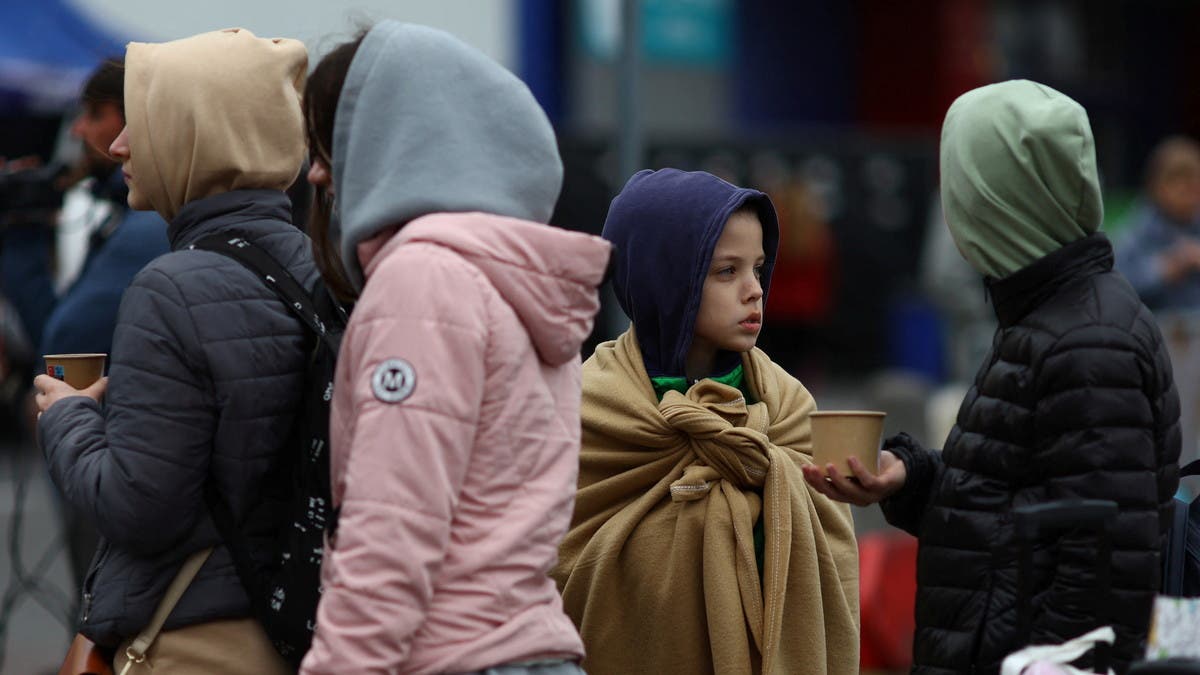As Russian bombs rained down on the northeastern Ukrainian city of Kharkiv in early March, Zoya Mamatkulova and her mother packed up their bags, put their cat in a pet carrier and headed for Poland.
For the latest headlines, follow our Google News channel online or via the app.
But after travelling across three countries, shuttling between refugee shelters and a relative’s house, the pair decided to go home – joining a growing number of Ukrainian refugees who are choosing to return as the war drags on.
Their story highlights the risks, however, especially in eastern areas where Russian forces have focused their offensive after abandoning an assault on the capital, Kyiv, in late March.
Days after getting back to their apartment, heavy Russian shelling of Kharviv forced Mamatkulova, her mother and cat to leave again.
“When we arrived in Kharviv, it was quiet for the first two days (but) in the days after that, it became impossible to stay there,” she said, back in Poland once again.
“We spent our whole lives (in Kharviv) and we’re hoping to return,” Mamatkulova told the Thomson Reuters Foundation.
More than 5.5 million Ukrainians have fled to neighboring Poland, Moldova, Romania and beyond since Russia invaded on February 24, according to the United Nations, which has called it Europe’s fastest-growing refugee crisis since World War Two.
But Ukrainian officials said last month more than 1 million citizens had returned to the country since the start of the invasion.
Statistics from Ukraine’s State Border Guard Service show there have been days when more Ukrainians returned than left.
On April 22, for example, more than 30,000 people left the country via Ukraine’s western borders with the European Union and Moldova, while 35,000 Ukrainians entered.
Train to Kyiv
At the railway station in the Polish border town of Przemysl during late March and early April, Ukrainians lined up to board a train bound for Kyiv.
Some only planned to go back temporarily, but for many the desire to return to their own homes and families outweighed the risks of life in a war zone.
Katya Fedorova, 20, left Kyiv in late March with relatives who had fled Russia’s advance in the Donbas region, and had planned to stay abroad.
But her partner in Kyiv suddenly fell ill so she made up her mind to go back just days after leaving.
“He doesn’t have anyone else in Kyiv to help him, so I’m going back,” Fedorova said.
Russian forces have since retreated from around the capital, but officials in the Kyiv region have warned residents against returning home yet.
Lyubov, 70, left her home in Vinnytsia in central Ukraine with her husband and daughter during the first days of the invasion, which Moscow calls a “special military operation” to disarm its southern neighbor.
Ukraine and the West say this a false pretext for an unprovoked war of aggression by Russia.
Though grateful for the help they have received in Poland, Lyubov said the family were eager to return.
“I never knew that the Polish were such generous people,” she said, asking not to give her surname.
“They gave us a big room with all the amenities. They gave us so much food, we couldn’t eat it all. But we want to go home,” she said, adding that she wanted to see her son, who had stayed behind and joined the Territorial Defense Forces.
“When we ring him, he yells: ‘Don’t come here, stay there’,” she said. “So, we’re going now and not telling him anything.”
Border volunteers
Oleksandr Fedorov, a volunteer from Mariupol, has been helping Ukrainians at Medyka, the busiest border crossing between Ukraine and Poland, since the early days of the war and has noticed an increase in the number of people heading back.
He said most people he had spoken to were returning to safer regions that have been spared from heavy fighting since the start of the invasion.
Fedorov said many of those who had fled the main conflict zones more recently were suffering trauma and in need of assistance at a time when Poland was running out of room.
“There’s no space for them,” he said.
“These are people that have been sitting in basements for a month, who have been fired upon, who have seen violence, death of their relatives. It’s horrible.”
Among those who had fled recently was Irina Safyanova. The 51-year-old left Odesa when Russian missiles started landing closer to home. Safyanova said it was loud and “very frightening”.
“When the air raid sirens went off, I’d go down to the basement. But air raid alerts are one thing, when the bombardment starts, that’s something else,” she said at the railway station.
Safyanova said she planned to stay in Poland and work as a chef’s assistant.
Anya, 22, was heading back the other way, hoping to get on with her life in Zaporizhzhia, a city in southeastern Ukraine, after spending about two weeks in dormitory accommodation in Germany.
“I want to go home, my work is there. Everything is waiting for me there,” Anya, who declined to give her surname, said as she waited to board the overnight train to Ukraine.
“I’m not scared of anything anymore,” she said. “If I’m destined to die, so be it.”
Read more:
Russia hits US-supplied weapons at railway station in Ukraine: Ministry
Russia still shelling Mariupol plant with ‘artillery, tanks, mortars, infantry’: Azov
Kyiv protests German police confiscating Ukraine flag

 World3 years ago
World3 years ago
 World3 years ago
World3 years ago
 Business12 months ago
Business12 months ago
 Entertainment7 years ago
Entertainment7 years ago
 World7 years ago
World7 years ago
 Entertainment7 years ago
Entertainment7 years ago






